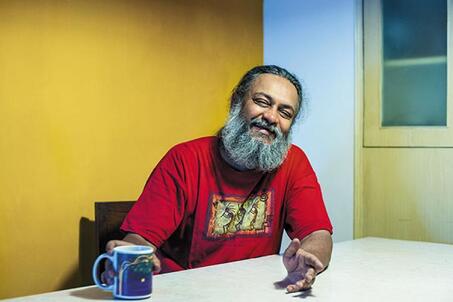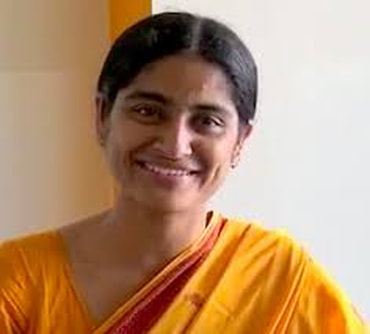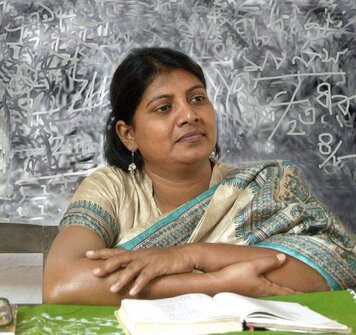Virtual MILAN 2020
The Annual Donor Appreciation Event by AID Bay Area
Saturday, Oct 17, 6:00pm PDT
In these uncertain times, what we can collectively do is to ensure that every human being is treated equally regardless of their social or economic standing. This year, we are proud to feature two exceptional and inspiring grassroots change-makers who work tirelessly towards ensuring a just future for all: A labor rights activist and AID Jeevansaathi, Kamayani Swami, and award winning women's and minority rights activist, Ayesha Khatun. Along with them, we will have renowned musician and activist, Rahul Ram, who has used his music to contribute to progressive causes.
We would be thrilled if you can join us virtually to to hear from these change makers and chart a path forward together. We encourage you to extend this invitation to like-minded friends and family.
Interact with Change Makers
Rahul Ram
|
Rahul Ram never thought he was going to become a musician. He studied chemistry in college and obtained a PhD in environmental toxicology, and seemed well on the way to becoming a professional scientist, but fate intervened and he joined the Narmada Bachao Andolan in his late twenties. He started playing the guitar in school and was a semi-professional musician during his college years. A trip to Garhwal visiting the Chipko Andolan during his school years made him passionately interested in environmental issues. All of this somehow led to Rahul becoming a full-time musician somewhere in his early 30s and he has been playing with the band Indian Ocean for over 29 years now. Six years ago, he became part of a stand-up comedy act called Aisi Taisi Democracy, that focusses on social and political issues.
|
|
Kamayani Swami is an AID Jeevansaathi, a labor organizer and human rights activist. She works for the welfare and empowerment of agricultural and other unorganized-sector labor workers in the rural communities of Araria and Katihar districts in Bihar. Kamayani's work has been instrumental in initiating regular audits of government work and involving the common people in the implementation and monitoring of government schemes.
|
Ayesha started her work with translating the Bengali alphabet using Santhali sounds and freed 88 tribal kids from child labor in one village in her first year and now works in 85 villages in both West Bengal and Jharkhand on a myriad of development issues with a focus on gender equity. She is a prolific Bangla writer on social issues and women's day to day life and has a wide state and national network with dalit and tribal writers to influence society. She uses arts, theater, song and performance to shape opinions, build confidence and awaken civic duty to change society for the better.
|




